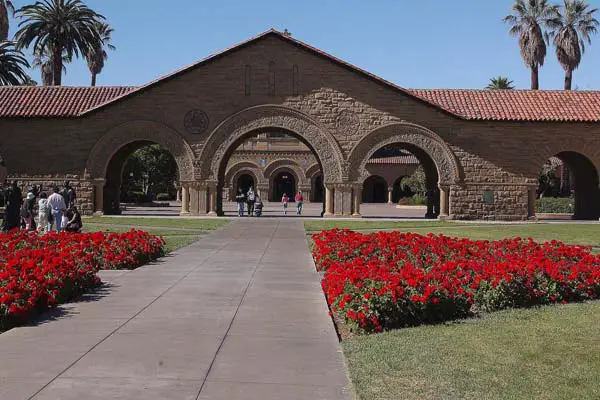Is IGCSE Sociology Hard? A Clear and Knowledgeable Answer
IGCSE Sociology is a subject that has gained popularity among students in recent years. However, many students hesitate to take the course due to concerns about its difficulty level.
The question of whether IGCSE Sociology is hard or not is a common one, and it is crucial to provide a clear answer to help students make informed decisions.
The difficulty level of IGCSE Sociology can vary depending on the student’s interest, aptitude, and preparation. While some students find the subject easy to understand and score well in, others may need help due to the conceptual nature of the subject.
IGCSE Sociology generally requires students to develop critical thinking skills and engage in independent research, which can be challenging for some.
Despite the challenges, IGCSE Sociology can be rewarding for students interested in social issues and human behavior. Through the course, students can gain a deeper understanding of society and its workings, which can be helpful in various fields.
Ultimately, the decision to take IGCSE Sociology should be based on the student’s interests and abilities rather than solely on its perceived difficulty level.
Understanding IGCSE Sociology
IGCSE Sociology is a subject that explores various aspects of social relationships, processes, and structures.
The goal is to understand human societies and how they evolve. The syllabus teaches students to assess various social, economic, and political systems critically.
The Cambridge IGCSE Sociology syllabus covers various topics: family, education, crime and deviance, social inequality, and globalization.
Learners must understand and analyze these topics from different perspectives, including functionalism, Marxism, feminism, and postmodernism.
To succeed in IGCSE Sociology, learners must understand the subject’s key concepts, theories, and methods well. They must be able to apply this knowledge to real-life situations and critically evaluate different arguments and perspectives.
🌟 Hey Students! 🚀 Ready for the ultimate experience? Join us on Studentsinside.com's Facebook, YouTube, WhatsApp, and LinkedIn. Click now for tips, fun, and success vibes! 🌈✨ #StudentLife #JoinUs
The IGCSE Sociology exam consists of two papers. Paper 1 is a multiple-choice exam that tests learners’ knowledge and understanding of the subject.
Paper 2 is a structured essay exam that tests learners’ ability to apply knowledge and critically evaluate different arguments and perspectives.
Exam Structure and Evaluation
Paper Format
The IGCSE Sociology exam consists of two papers: Paper 1 and Paper 2. Both papers are two hours long and worth 80 marks each.
Paper 1 is a multiple-choice paper consisting of 40 questions.
The questions are based on the core themes of the syllabus and require candidates to demonstrate their knowledge and understanding of sociological concepts and theories.
Paper 2 is a structured essay paper consisting of four questions. Candidates must answer two questions from a choice of three in Section A and two from a selection of three in Section B.
The questions in this paper aim to assess the candidates’ capability to utilize their knowledge and comprehension of sociological concepts and theories in analyzing particular case studies and scenarios.
Grading System
The IGCSE Sociology exam is graded on a scale of A* to G, with A* being the highest grade achievable. To achieve an A* grade, candidates must complete a minimum of 72 marks out of a possible 80 in both Paper 1 and Paper 2.
The grading system is based on the following criteria:
- AO1 Knowledge and understanding: Candidates must demonstrate a good understanding of sociological concepts and theories and be able to apply this knowledge to a range of case studies and scenarios.
- AO2 Application: Candidates must apply their knowledge and understanding of sociological concepts and theories to specific case studies and scenarios and demonstrate an ability to evaluate the strengths and weaknesses of different sociological perspectives.
- AO3 Analysis and evaluation: Candidates must be able to analyze and evaluate sociological data and evidence and demonstrate an ability to evaluate different sociological perspectives critically.
Past papers and mark schemes are available on the Cambridge Assessment International Education website, and candidates can use these to help them prepare for the exam.
It is recommended that candidates practice answering past papers under timed conditions to develop their exam technique and improve their chances of achieving a good grade.
Difficulty Level
Many students consider IGCSE Sociology to be a challenging subject. However, the difficulty level of the subject can vary depending on the individual’s interests and strengths. Some students may find the subject easy, while others may need help to keep up with the course material.
The difficulty level of IGCSE Sociology can be attributed to several factors. One of the primary reasons is the amount of content that needs to be memorized.
Students must learn and remember much information, including theories, concepts, and case studies. This can be overwhelming for some students who need help retaining all the information.
IGCSE Sociology can be challenging due to the subject’s inherent complexity. Sociology, a social science, explores human behavior, society, and culture, necessitating critical thinking and analysis. This can be daunting for students unfamiliar with such cognitive processes.
Furthermore, the subject requires students to have excellent writing and communication skills. Students need to articulate their ideas and arguments clearly and concisely. This can challenge students needing help writing or expressing themselves effectively.
Syllabus Overview
The Cambridge IGCSE Sociology syllabus is designed to develop learners’ critical evaluation of different social, economic, and political structures.
It aims to build an understanding of sociological research methods and enhance learners’ ability to assess different forms of information and evidence. The syllabus is organized into seven study units exploring the nature of social relationships, processes, and structures.
The most recent syllabus, version 1, released in September 2017, is valid for exams in June and November of 2020, 2021, and 2022.
It has been revised to accommodate the ongoing developments in sociology and the alterations in social, economic, and political environments.
The continuity of the syllabus is maintained by retaining the core concepts and themes essential to understanding sociology as a subject.
However, the syllabus has been modified to incorporate new areas of study, such as the impact of globalization, migration, and technological advancements on society.
The syllabus is structured to provide learners with a comprehensive understanding of the discipline, starting with an introduction to sociology and its key concepts. The subsequent units cover socialization, culture, identity, and social stratification.
The syllabus also explores critical sociological theories and research methods, enabling learners to critically evaluate different forms of information and evidence.
Preparation Tips
Studying for the IGCSE Sociology exam may seem tough, but it can be simplified with the correct strategy.
Reading and Writing Skills
One of the essential skills that students need to develop for the IGCSE Sociology exam is reading and writing. The exam requires students to read and analyze various texts, including case studies, articles, and research papers.
Therefore, students must develop reading skills to understand and interpret the text effectively.
To improve reading skills, students can:
- Practice reading different texts, such as academic articles and case studies.
- Highlight and take notes while reading to help remember key points.
- Summarize the text in their own words to ensure they understand the content.
In addition to reading skills, writing skills are crucial for the IGCSE Sociology exam. Students must express their ideas and arguments clearly and coherently in the exam. Therefore, students need to practice writing to improve their skills.
To improve writing skills, students can:
- Practice writing essays on different topics to develop their writing skills.
- Use clear and concise language to express their ideas effectively.
- Plan their essays before writing to ensure they have a clear structure and argument.
Utilizing Past Papers
Utilizing past papers is a beneficial approach to preparing for the IGCSE Sociology exam. They allow students to get acquainted with the exam structure and the variety of questions that might appear, aiding in effective preparation.
Additionally, past papers can help students identify areas where they need to improve and focus their revision.
To utilize past papers effectively, students can:
- Practice answering past papers under timed conditions to simulate the exam environment.
- Analyze their answers to identify areas where they need to improve.
- Revise the topics that they struggled with in past papers.
Online Resources
Students preparing for the IGCSE Sociology exam have access to several online resources. This section highlights two widely used ones: the School Support Hub and the r/IGCSE community on Reddit.
School Support Hub
The School Support Hub is an online platform Cambridge Assessment International Education provides. It offers a range of resources to support teachers and students, including syllabus information, topic guides, and past papers.
Students can use the School Support Hub to access various resources to help them prepare for their IGCSE Sociology exam.
One helpful feature of the School Support Hub is the “Ask a Teacher” section. Here, students can ask questions about the syllabus or specific topics and receive answers from experienced teachers.
The platform provides interactive quizzes and activities, allowing students to effectively assess their knowledge and grasp of the subject.
r/IGCSE Community
The r/IGCSE community is a subreddit dedicated to students taking IGCSE exams. It provides a platform for students to share tips, ask for help, and offer advice to one another.
The community is moderated by experienced IGCSE students and teachers, ensuring that the information shared is accurate and reliable.
Students can use the r/IGCSE community to connect with other students taking the same exam, share study resources, and ask for help with specific topics. The community also supports and encourages students as they prepare for their exams.
Role of Teachers
Teachers are pivotal in ensuring student success in IGCSE Sociology, fostering a positive learning atmosphere, and offering essential support and resources for optimal learning.
In IGCSE Sociology, teachers must encourage students to think critically, analyze data, and develop their opinions. They must also ensure that students have a solid understanding of sociology’s fundamental concepts and theories.
Teachers should explain complex topics clearly and succinctly to students and be accessible for questions or concerns. Regular feedback and constructive suggestions should also be provided to guide students’ progress.
Teachers need to create an inclusive and supportive classroom environment for all students. They must recognize and respond to the diverse learning needs of their students and provide accommodations when necessary.
O Level vs. IGCSE Sociology
O Level and IGCSE Sociology are two different qualifications Cambridge International Examinations offer. While both are designed to assess a student’s understanding of sociology, there are some critical differences between the two.
O Level Exams
O-level exams are designed to assess a student’s knowledge and understanding of a subject at a foundational level. They are typically taken by students in the 14-16 age range and are often used as a stepping stone to more advanced qualifications. O-level candidates are only awarded grades from A* to E, where A* is the highest achievable grade.
IGCSE Sociology
IGCSE Sociology is an advanced qualification to evaluate students’ skills in applying sociological knowledge and concepts to real-world scenarios. It is usually pursued by students aged 16-18 and is commonly required for admission to university-level courses.
Differences between O Level and IGCSE Sociology
The following are some of the critical differences between O Level and IGCSE Sociology:
- Cambridge O Level candidates are only awarded grades from A* to E, while Cambridge IGCSE candidates are awarded grades from A* to G.
- Cambridge O Level offers fewer coursework options than Cambridge IGCSE.
- Cambridge IGCSE Sociology is a more advanced qualification than Cambridge O Level Sociology and is more difficult.








